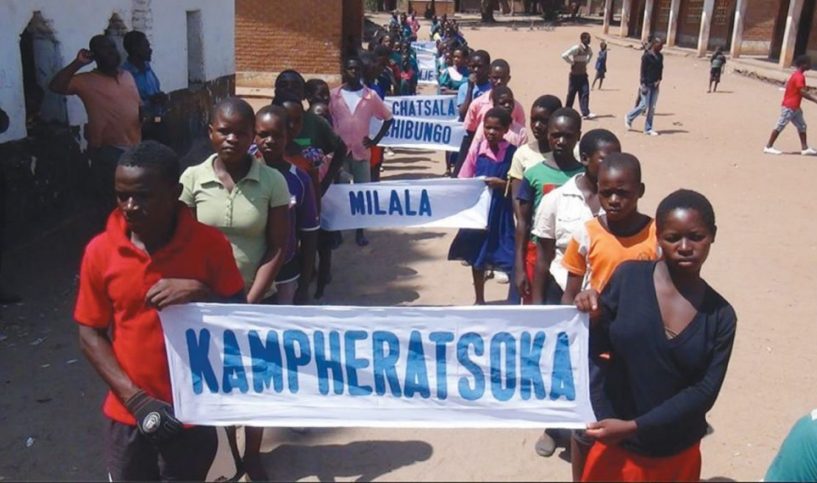The New Year is well on its way and there is a distinct smell of resolution naivety in the air. Among the popular resolutions people break before the end of January is the decision to give to charity. However, simply putting your details into an online algorithm and sending your money to a faraway organization is not the best way to use your hard-earned cash. It is neither as sustainable nor as effective as you think.
In January last year, bazaar magazine published an article about Kuwait English School (KES) students raising money for Chingalire Rural Growth Centre (CRGC). Between September 2014 and June 2015, they raised almost KD 3,000 for the establishment and have gone on to raise another KD 2,200 just this year. However, their involvement stretched much further than merely collecting money from the students and sending it away and marks the difference between charity and community engagement.
Chief of Chingalire village Ben Mankhamba has taken it upon himself to provide the children living in Chingalire with the best learning and living experience possible. In 2012, he established the non-governmental organization CRGC, “a model teaching and learning center for children and different communities”. He integrates the curriculum with vast amounts of music, physical activity and learning of life skills. One of CRGC’s most recent successes involves one of their students singing a radio jingle for a national radio station. The 13-year-old student in question, Maria Kaitoni, has allowed Malawian residents to see the Chingalire children’s potential on a much broader scale. Moreover, a recent seminar took place, in which the students were able to discuss the future of CRGC with Mankhamba and suggest steps towards a better learning environment. Plans involve establishing a technical school where students would garner skills such as modern farming, carpentry and brick-laying.
A strong relationship has been established between the two schools since their first contact in 2013. As a result, students from both schools have had the opportunity to learn about each other and the very different cultures they form a part of. Mankhamba believes that their interaction is integral for both parties: “The CRGC children know that it is important to work hard in order to get what you want to achieve in life. KES children [are learning] that what they have in life others don’t have and that it is important to share for others to get a better life.”
KES students were given an insight into this form of engagement and have come to understand that their own educational system is profoundly different, with the focus being on theoretical understanding. On the other hand, Chingalire students are equipped with practical skills that will instill in them life-long values. For example, the students learn patience and kindness through helping and teaching their younger peers. In addition, they are taught in a way that emphasizes the importance of nature in their lives, which encourages a mind-set of sustainability and resourcefulness. This is further highlighted by the installation of solar panels to power the computer labs and the ever-expanding tree nursery the students are responsible for.
Throughout the academic year, Mankhamba writes letters to the KES students with updates from Chingalire. The KES students have even been invited to visit the school to see the effect of their work. Throughout the CRGC compound, some new structures have been painted with “funds raised by students of Kuwait English School in Salwa, Kuwait.” Although it is important to remember organizations such as CRGC do not owe anything to those who raised funds, being part of a community engagement project depicts insight into the tangible result of your work. For some people, not being able to see the result of their effort discourages them from donating to large-scale charities.
What sets this kind of movement apart from other charity drives is the transparency between parties. Many people are hesitant when donating to charities because they “can’t see where the money is going”. Before we even begin to change our outlook on charitable work, we need to establish a sense of trust. In many cases, this acts as motivation not to donate money but the reality of the situation is that people need to donate their money to save and improve lives. In order for this to happen, the public must shift its mind-set or consider donating their time as well as their money.
In cases such as the Syrian refugee crisis, money is necessary to buy tents and provisions. Nonetheless, the thoughtless flow of donations runs the risk of dehumanizing the individuals affected by the crisis and portraying them as unfeeling charity coin pots. Social interaction – no matter the proximity – is essential to ensure that they are supported with dignity and respect (fiscally and emotionally), especially in light of the heightened Islamophobia in Western regions at the moment.
To donate to the Chingalire Rural Growth Centre or to find out more about the work at this excellent organization, contact Ben Mankhamba directly by email at benmankhamba@gmail.com.











